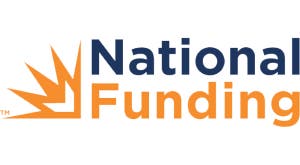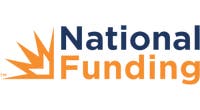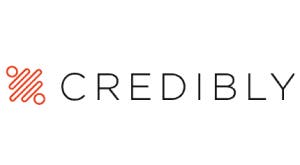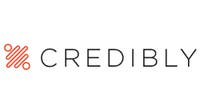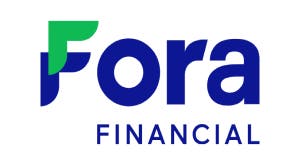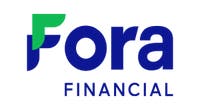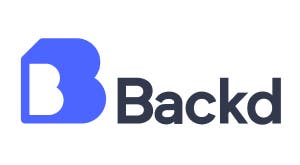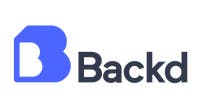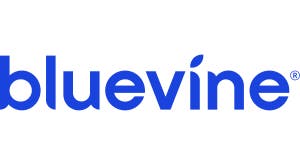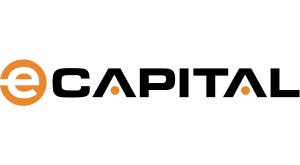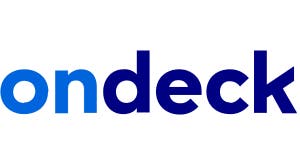on partner site
Best short-term business loans in February 2026
Updated January 8, 2026
on BusinessLoans.com
on BusinessLoans.com
on BusinessLoans.com
on BusinessLoans.com
on BusinessLoans.com
on Bankrate
on BusinessLoans.com
How Bankrate works

How Bankrate works
Compare lenders
Our team researched the best business loan options available so you can compare business lines of credit.
Let us know what you are looking for
Click the ‘See personalized rates’ button next to the provider of your choice and provide us with a little information about what type of loan you’re looking for.
Get matches and receive funding
Choose a loan from a Bankrate partner and receive your funds if you qualify.
A closer look at Bankrate’s top short-term business lenders
Best for bad credit: Fora Financial
Fora Financial offers large loans up to $1.5 million, but without the slow processing times that big banks require. You can get a lending decision within four hours, and you may be able to receive funding within 24 hours.
Pros and cons
- Possible early repayment discount
- Soft credit check at application
- Minimum FICO score of 570
- Maximum factor rate is fairly high
- Few types of loans
- Steep annual revenue requirement
Best for established businesses: Bluevine
Bluevine offers low-interest business lines of credit to established businesses with at least one year in business. Once the line is open, you can access funding whenever you need it, with instant funding if you have a Bluevine checking account.
Pros and cons
- Relatively low rates
- Fast funding times
- Significant eligibility requirements
- Lines of credit, not traditional loans
- Not available in all states
Best lender for startups: OnDeck
Providing short-term loans and lines of credit, OnDeck has helped over 150,000 business owners get the funding their businesses need. OnDeck can fund loans the same day you apply, significantly speeding up the process of receiving your loan.
Pros and cons
- Same-day funding
- Reports to credit bureaus
- Open to fair credit borrowers
- High annual percentage rates (APRs)
- Not available in all 50 states
- Loan origination fees
Best for personalized funding: SmallBusinessLoans.com
SmallBusinessLoans.com is a go-to source for comparing business loans from multiple lenders. You can fill out one simple application and get matched with business loans and lenders personalized to your funding needs.
Pros and cons
- Low minimum annual revenue requirement
- Variety of lending partners
- Personalized funding options
- Must fill out an application to know what you qualify for
- May not be eligible for every product
- Limited information online
Best for lines of credit: American Express Business Blueprint™
American Express Business Blueprint specializes in its business line of credit with flexible terms. It offers one of the most lenient requirements for revenue, accepting just $3,000 in monthly revenue, although it pays off to go with the shortest term possible since American Express charges higher monthly fees for longer terms.
Pros and cons
- Accessible minimum loan amount
- Relatively fair eligibility requirements
- No maintenance or annual fee
- Fee structure can be confusing
- Requires collateral
- Requires personal guarantee
Best for merchant cash advances: Credibly
If you’re in the market for a merchant cash advance, Credibly offers MCAs with flexible terms and loan amounts. You can get terms from three to 24 months, and funding goes up to $600,000.
Pros and cons
- Fast approvals
- Funding in as little as 24 hours
- Available in all states
- Daily or weekly repayment
- High fees
- $25K+ in monthly revenue required
Best for secured loans: iBusiness Funding
For secured business loans, look to iBusiness Funding. Businesses with low revenue and fair credit may find its loan offers competitive, with low interest rates starting at 7.49%.
Pros and cons
- Flexible repayment terms
- Low revenue requirement
- Helps build business credit
- Requires two years in business
- No unsecured loan option
- High origination fee
Best overall for short-term business loans: Backd
Backd is known for its unusually large loan amounts, funding up to $2 million if you qualify. In addition to short-term loans and lines of credit, it offers a unique Buy Now, Pay Later loan that allows you to finance a purchase for 12 months with no money down.
Pros and cons
- Same-day application decisions
- Soft credit check for preapproval
- Large lending amounts
- Interest rates can be high
- Not suitable for brand-new startups
- Need at least fair credit to qualify
Best for invoice factoring: eCapital
eCapital’s mainstay is alternative financing, specifically various types of asset-based lending. You can borrow against valuable assets your business owns, like accounts receivable, equipment or real estate. This lender works best for businesses looking for large loans from $250,000 to $50 million.
Pros and cons
- Funding in 24 hours after onboarding
- High advance rates
- No invoice upload fees
- Fees not disclosed on website
- Need creditworthy customers
- Lengthy onboarding process
Best for early payoff discount: National Funding
National Funding specializes in short-term business loans in addition to equipment loans and leases. There is a discount for paying off your loan early, which is a huge perk that helps you save money on interest.
Pros and cons
- Access to high loan amounts
- Fast funding
- Funding specialists available to help
- Potentially high interest rates
- $250,000 minimum annual revenue
- Limited monthly payment option
How Bankrate chose the best short-term loan lenders
Bankrate's trusted small business loan industry expertise
57
years in business
30
lenders reviewed
22
loan features weighed
770
data points collected
How to get a short-term business loan through Bankrate
1. Determine if a short-term loan is right for your business
Short-term business loans are generally term loans that requirement repayment within one to two years. They’re often referred to as working capital loans, though lenders may use the term for different products.
Due to their short repayment terms, some loans require weekly or even daily payments rather than monthly payments. The payment may also be higher than a loan with a longer term. Before committing, make sure your business can keep up with the repayment schedule.
This type of funding is best when your business is experiencing acute financial issues, such as:
- Budget shortfalls. A short-term loan can give you an infusion of cash if you need funds to buy inventory or cover emergencies.
- New opportunities. Sometimes, a great deal falls into your lap and it could be a boon for your company, if only you could afford it. Imagine you own a restaurant and the chance to open a new location in a popular area appears, but you need cash tomorrow. A short-term loan could help.
- No or insufficient collateral. Many short-term loans don’t require collateral, making them an option for newer companies or those without significant assets.
Keep in mind that short-term business loans can be expensive and, in some cases, dangerous for your company’s future. You might want to avoid them if your business has long-term issues with cash flow, you aren't able to pin down a reasonable rate or if your business doesn't have the revenue to maintain repayments.
The best way to manage an aggressive loan payback period is to establish a prudent budget and a detailed cash flow forecast to manage your obligation. ... For good measure, implement autopay for the loan. Doing so will mitigate the possibility of missing a due date, incurring penalties and damaging your firm’s credit.Thomas Brock: CFA, CPA
When to consider a short-term business loan
When your business needs capital and needs it quickly, a short-term business loan may be the way to go. Here’s what you need to know.
Learn more2. Calculate how much debt your business can handle
One thing to keep in mind is that the cost of a short-term business loan can be higher than other types of loans. This will limit how much you can borrow and make your payments somewhat more expensive in proportion to traditional loans.
Some short-term loans use a factor rate rather than interest. To determine how much you’ll owe using factor rates, multiply your loan amount by the factor rate. For example, if you borrow $10,000 at a factor rate of 1.15, you’ll have to repay $11,500. This is on top of any other costs like origination fees and early repayment fees, so be sure to read the fine print to determine the full amount you need to repay.
In general, you should avoid more than a 36% debt-to-business-income ratio when it comes to taking out a loan. This means that for every $100,000 you earn annually, you should aim to take on no more than $36,000 in total.
Your monthly payment will also determine how much you can borrow. If you can only afford $2,000 a month in loan payments, then for a 5-month business loan with a factor rate of 1.1, you’d be able to afford a loan maximum of $9,861.
You can use a business loan calculator to look at your loan amount, interest rate and fees and determine how much you can and are comfortable with borrowing.

How much will a short-term business loan cost?
A short-term business loan can help your business cover gaps in funding, pay for an emergency expense or jump on the opportunity to grow on short notice.
Learn more3. Make sure your business meet requirements
Lenders have different eligibility requirements for business loans when you apply for short-term financing.
- Length of time in business: Typically, the lender will require six months to two years.
- Annual revenue: Typically, you’ll need at least $100,000 in yearly revenue to qualify though some lenders let you apply for a short-term business loan with just $50,000 in annual revenue.
- Credit score: Most short-term loans require you to have a personal credit score over 600, though some lenders have more lenient standards in exchange for a higher interest rate or lower loan amounts.
- Personal guarantee: Since these types of loans are often targeted at businesses in need of fast access to cash, many lenders require a personal guarantee, which secures the loan with your personal assets.

What documents are required to apply for a short-term business loan?
Getting ready to apply for a loan? Get your paperwork in order and get approved more quickly.
Learn more4. Prequalify through Bankrate
When shopping for loans, consider prequalifying with us. Bankrate offers multiple benefits if you decide to prequalify on our site, including:
- Instant prequalification based on your credit profile.
- Compare multiple lenders at once instead of one lender at a time.
- No hard checks.
- Get expert insights based on unbiased reviews and analyses.
- Access loan information and applications in one place.
- Build a profile you can access later in the process.
Pros and cons of short-term business loans

Pros
- Fast funding. Whether you need money to cover payroll, inventory or other urgent expenses, many business term loans are funded within a few days.
- Flexible financing. Short-term loans often have flexible financing options, giving a borrower a variety of options for financing — from weekly to monthly repayments and repayment terms ranging from weeks to two years.
- Simple application process. These loans are usually offered by online lenders, who let you submit your application through their website. The entire process takes just a few minutes in some cases.
- Less strict eligibility requirements. It depends on the specific loan, but some short-term small business loans accept applicants with bad credit. Others work with startups that haven’t yet established a track record of business success.

Cons
- Smaller loan amounts. Short-term loan amounts from online lenders tend to have smaller limits than longer term loans. Expect most short-term loans to have a maximum borrowing limit of $250,000 to $500,000, whereas long-term business loans often have maximum amounts in the millions.
- Rates and fees can be steep. Lenders know that the companies applying for these types of loans are often desperate for cash. As a result, they may charge high interest rates or origination fees in exchange for the speed and convenience that they offer.
- Tight repayment schedules. Since short-term business loans need to be repaid faster than other types of loans, you’ll have to make more frequent payments. Weekly or daily payments are common.
- Can create a cycle of debt that’s hard to overcome. If you’re focusing on repaying your loan every day or week, you might not be able to put as much money toward other debts or business needs.
How to compare short-term business loans
Different types of short-term loans will have different advantages, depending on your business priorities. Here’s what you should know.
| Loan type | What it is | Rating | Notes |
|---|---|---|---|
| Short-term loans | A lump-sum cash loan with repayment terms of less than a year. |
Speed: ★★★★☆ Cost: ★★★★☆ Requirements: ★★★☆☆ |
|
| Lines of credit | A revolving pool of credit that can withdrawn from continuously. |
Speed: ★★★★☆ Cost: ★★★★★ Requirements: ★★★★☆ |
|
| Business credit cards | A long-term revolving credit line that can come with rewards for spending. |
Speed: ★★★★☆ Cost: ★★★☆☆ Requirements: ★★★★☆ |
|
| Invoice financing | Borrowing based on a percentage of your company’s unpaid invoices and repaid with fulfilled invoices. |
Speed: ★★★★★ Cost: ★★☆☆☆ Requirements: ★★★★☆ |
|
| Merchant cash advances | Loans based on a percentage of debit/credit card sales and repaid through future sales. |
Speed: ★★★★★ Cost: ★★☆☆☆ Requirements: ★★★★☆ |
|
Frequently asked questions about short-term business loans
- Small business loans
- Personal finance


